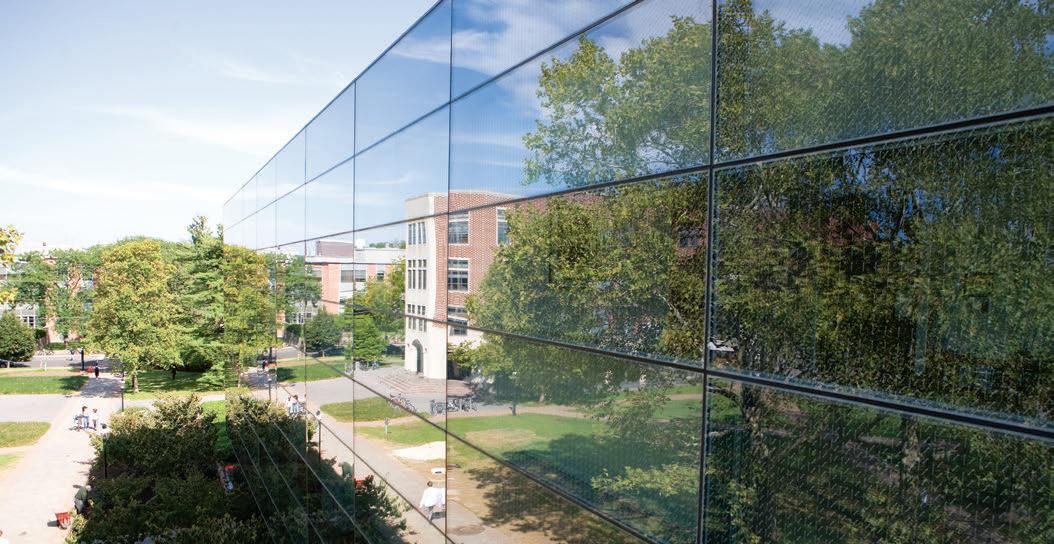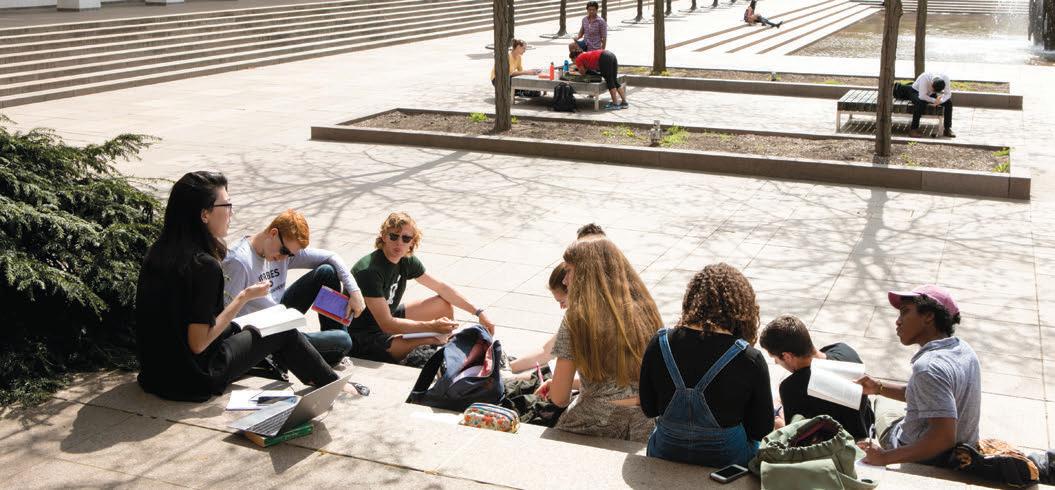
3 minute read
Freedom to Explore 4
Freedom to Explore
At Princeton, you have the freedom to explore your intellectual interests and follow your passions.
Any field you choose will teach you to think critically, solve problems, express yourself clearly, broaden your understanding of the human experience and prepare you for success in whatever path you take.
DEGREES AND PROGRAMS
Princeton offers two bachelor degrees: a Bachelor of Arts (A.B.) and a Bachelor of Science in Engineering (B.S.E.). You can choose from among 37 concentrations (majors) and 55 interdepartmental certificate programs. In lieu of existing programs, you may apply for an independent concentration. Students are encouraged to take classes across a spectrum of academic fields. You may take courses in the humanities, engineering, natural sciences, social sciences and creative arts.
Programs for engineering, architecture, and public and international affairs are consolidated into schools, though all students apply to Princeton and not to a particular school. The School of Engineering and Applied Science emphasizes fundamentals of engineering science and design while integrating its teaching and research within the liberal arts and other departments across campus.
I came to Princeton because I wanted a liberal arts education that would enable me to pursue multiple interests rigorously and deeply. I concentrated in physics, but the courses that most shaped my intellectual life were in constitutional law, political theory and comparative literature. Christopher L. Eisgruber Princeton University President Class of 1983
The School of Architecture is a center of teaching and research in architectural design, history and theory. The Princeton School of Public and International Affairs offers a multidisciplinary concentration for students who are passionate about public policy, with an emphasis on studying varied perspectives and finding real-world solutions to public challenges.

Students select an academic concentration after their first year for B.S.E. candidates and after sophomore year for A.B. candidates. Students also may earn certificates in other areas of interest. For example, a molecular biology concentrator may earn a certificate in visual arts, a computer science concentrator may earn a certificate in global health and health policy, or an African American studies concentrator may earn a certificate in sustainable energy. More information on degrees and requirements may be found at www.princeton.edu/academics.
A.B. DEGREE
Students pursuing a Bachelor of Arts degree may major in any one of the following academic departments in the humanities, the natural sciences or the social sciences:
African American Studies Anthropology Architecture Art and Archaeology Astrophysical Sciences Chemistry Classics Comparative Literature

Computer Science East Asian Studies Ecology and Evolutionary Biology Economics English French and Italian Geosciences German History Mathematics Molecular Biology Music Near Eastern Studies Neuroscience Philosophy Physics Politics Psychology Religion School of Public and International Affairs Slavic Languages and Literatures Sociology Spanish and Portuguese
Programs of study in the School of Engineering and Applied Science lead to the degree of Bachelor of Science in Engineering. Students may concentrate in one of the following academic departments:
Chemical and Biological Engineering Civil and Environmental Engineering Computer Science Electrical Engineering Mechanical and Aerospace Engineering Operations Research and Financial Engineering
CERTIFICATE PROGRAMS
Students also may choose from among 55 certificates of proficiency, which offer a chance to pursue focused study in an area of interest or in subjects that supplement the primary work of a student’s concentration. Students may earn more than one certificate.
African American Studies African Studies American Studies Applications of Computing Applied and Computational Mathematics Archaeology Architecture and Engineering Asian American Studies Biophysics Cognitive Science Contemporary European Politics and Society Creative Writing Dance East Asian Studies Engineering and Management Systems Engineering Biology Engineering Physics Entrepreneurship Environmental Studies Ethnographic Studies European Cultural Studies Finance Gender and Sexuality Studies Geological Engineering Global Health and Health Policy Hellenic Studies History and the Practice of Diplomacy Humanistic Studies Jazz Studies Journalism Judaic Studies Language and Culture Latin American Studies Latino Studies Linguistics Materials Science and Engineering Medieval Studies Music Performance Music Theater Near Eastern Studies Neuroscience Planets and Life Quantitative and Computational Biology Robotics and Intelligent Systems Russian, East European and Eurasian Studies South Asian Studies Statistics and Machine Learning Sustainable Energy Teacher Preparation Technology and Society Theater Translation and Intercultural Communication Urban Studies Values and Public Life Visual Arts










